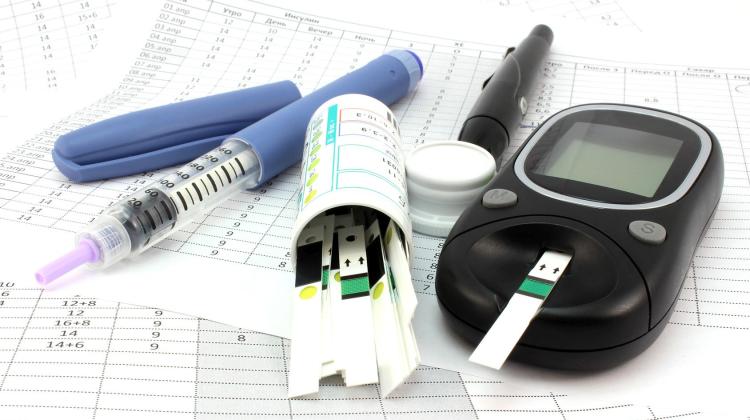Worldwide study of diabetic patients with the participation of Silesian scientists
 Photo: Fotolia
Photo: Fotolia
400 people with newly-manifested type 1 diabetes and first-degree relatives of all patients with type 1 diabetes will be examined by researchers from the Child Diabetes Clinic of the Medical University of Silesia in Katowice as part of the INNODIA project.
This is the world\'s largest study, which aims to understand the causes of the development of type 1 diabetes, discover how to maintain insulin production and develop new treatments for this disease. The clinic in Katowice is the only centre in this part of Europe that recruits for the project - the spokeswoman of the Medical University of Silesia, Agata Kalafarska-Winkler informed on Friday.
"The number of people with diabetes is growing rapidly. Among children, type 1 diabetes is the most common chronic disease, but despite the improving technology, we still can not prevent it, because we do not know its immediate cause. Hence the idea of the study to understand this disease at every stage and search for new therapies" - said the head of the Child Diabetes Clinic of the Medical University of Silesia, Prof. Przemysława Jarosz-Chobot.
Across Europe, the study will include 1,500 patients with newly identified type 1 diabetes and 3,000 first-degree relatives of patients with type 1 diabetes aged 1 to 45 years, of which 400 participants will be screened at the Katowice centre.
Patients with diabetes identified up to 6 weeks prior to the study will be under the care of the centre for the next two years, first-degree relatives for four years. During the regular visits to the clinic, all participants will be thoroughly examined. They will also have to do some tests at home once a month.
"People who decide to participate in the study must be understand that it will require reliability, self-discipline and dedication of their time" - said the coordinator of the INNODIA program on behalf of the Child Diabetes Clinic, Dr. Eliza Skała-Zamorowska.
The program participants are 33 reputable centres in Europe specializing, among other things, in diabetology, immunology, genetics, molecular biology, microbiology, statistics and computer science. For the needs of the study, three huge biobanks will be created that will collect biological material of patients.
"We believe that such a huge involvement of so many clinical centres will bring us closer to solving the puzzle of diabetes development and allow us to detect harbingers of the disease before the destruction of cells occurs" - said Prof. Jarosz-Chobot.
The INNODIA program is financed from European funds with the support of pharmaceutical companies and the largest foundations of patients suffering from type 1 diabetes. People who want to take part in the project can apply to the Child Diabetes Clinic. More information about the project and contact details can be found on the website of the Upper Silesian Children\'s Health Center in Katowice, in the INNODIA tab.
Author: Anna Gumułka (PAP)
lun/ zan/ kap/
tr. RL
Przed dodaniem komentarza prosimy o zapoznanie z Regulaminem forum serwisu Nauka w Polsce.















